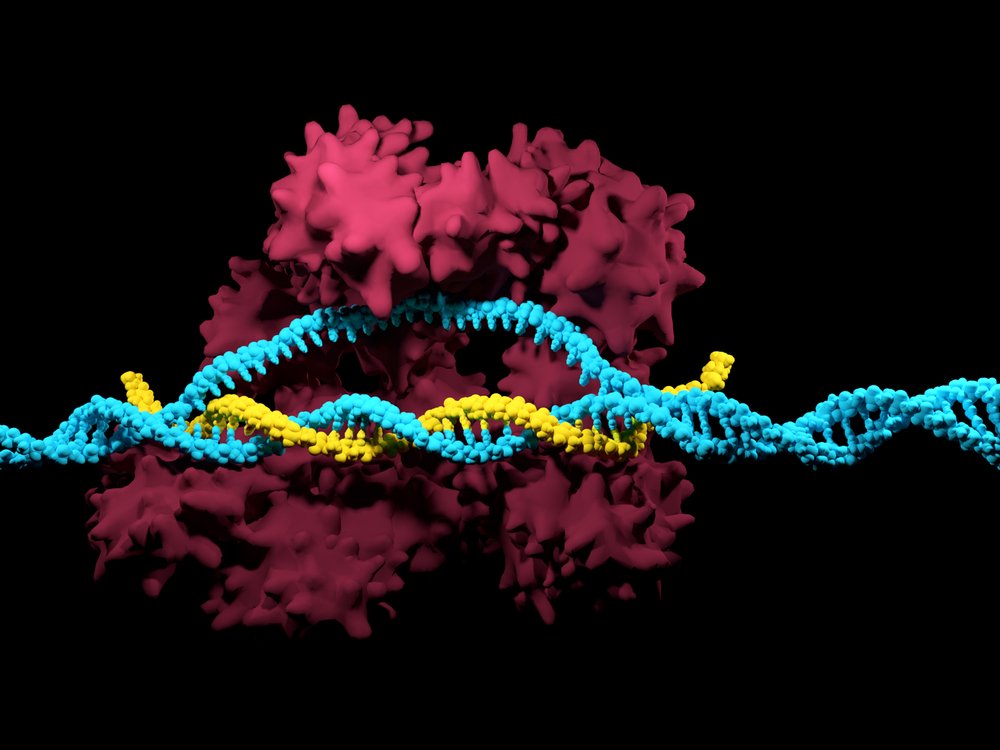Using Gene Editing to Suppress Activity of Protein Mutations Could Be Way to Treat Huntington’s, Study Reports

Researchers used gene editing to suppress the activity of protein mutations in the brains of mice with Huntington’s disease.
Suppressing the huntingtin protein alleviated early signs of the disease and reduced the mice’s movement problems, the study reported.
The research, “CRISPR/Cas9-mediated gene editing ameliorates neurotoxicity in mouse model of Huntington’s disease,” was published in The Journal of Clinical Investigation.
An expansion of a DNA sequence in the huntingtin gene leads to the faulty protein responsible for the disease. The defects, located in an area of the protein known as the N-terminal region, generate a range of cell dysfunctions.
Suppressing the protein mutation’s activity could be a way to treat the disease, studies in mice have suggested. One way that might be done is eliminating the Htt gene. But scientists have been concerned that this could lead to embryonic lethality, or a mouse failing to survive beyond the embryo stage.
Researchers decided to test that theory. They discovered that depleting normal HTT protein in mice’s brains had no impact on the animals’ growth, survival, of neuron development.
In addition, they learned that the N-terminal portion of the protein is not essential to early embryonic development.
The findings suggested that eliminating that component of the protein from mice’s brains could be a way to treat Huntington’s.
Researchers used CRISPR/Cas9 gene editing to suppress the activity of HTT protein mutations in a region of the brain known as the striatum, which plays a key role in controlling movement. This strategy depleted clumps of HTT associated with Huntington’s disease and reduced early signs of the disease.
In addition, eliminating HTT protein mutations significantly improved the movement abilities of mice with Huntington’s, compared with mice who did not have the gene editing and mice without Huntington’s.
Most importantly, the team learned that reducing the protein’s activity in striatum neuron cells alleviated the mice’s movement problems and neurological symptoms without otherwise affecting the animals.
Overall, the findings suggested that “using CRISPR/Cas9 to inhibit mutant protein expression in specific brain regions opens up a new avenue for treating Huntington’s disease as well as other neurodegenerative diseases” that stem from mutant genes, the study concluded.






